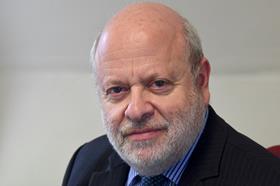At a meeting of European bars some years back at which disciplinary standards were discussed, there was general shock when the Swedish Bar announced that its lawyers can never be disciplined for issues arising outside of professional practice as a lawyer, for instance for private conduct.

The distinction between lawyers’ professional and private lives is more and more an issue. The obvious case is the recent High Court decision in Beckwith v SRA ([2020] EWHC 3231 (Admin)), concerning a Freshfields partner who had sexual relations with a junior solicitor in his department after her leaving party. The SRA, having won at the Solicitors Disciplinary Tribunal, lost on appeal to the High Court.
The court laid out the border between professional and private as follows:
'There can be no hard and fast rule either that regulation under the Handbook may never be directed to the regulated person’s private life, or that any/every aspect of her private life is liable to scrutiny. But Principle 2 or Principle 6 [from the SRA Handbook] may reach into private life only when conduct that is part of a person’s private life realistically touches on her practise of the profession (Principle 2) or the standing of the profession (Principle 6). Any such conduct must be qualitatively relevant … Regulators will do well to recognise that it is all too easy to be dogmatic without knowing it; popular outcry is not proof that a particular set of events gives rise to any matter falling within a regulator’s remit.'
The SRA issued a defensive statement afterwards, effectively saying ‘Je ne regrette rien’, and that it will continue to act on matters of sexual misconduct and harassment.
The recent events in the USA raise similar issues, but in a different subject area. I assume that any lawyer who is shown to have taken part in the assault on the Capitol would be disbarred. But what if a lawyer had merely been present in the crowd and not entered the Capitol building? What if a lawyer who is a Trump supporter has been arrested for peaceful protest?
In this country, the issue of arrest for peaceful protest has arisen in a completely different context, as evidenced by the letter from Lawyers for Extinction Rebellion to the SRA, seeking to ensure that its lawyer members are not disciplined for peaceful climate actions.
But what about a lawyer who is seen to incite violent action? To return to the assault on the Capitol, two Democratic members of Congress have complained to the Disciplinary Committee of the New York State Bar Association about the speech given by President Trump’s lawyer, Rudy Giuliani, to supporters gathered before the march on the Capitol, in which he is reported to have said:
‘Over the next 10 days, we get to see the machines that are crooked, the ballots that are fraudulent. If we’re wrong we will be made fools of, but if we’re right a lot of them will go to jail. Let’s have trial by combat.’
Was Rudy Giuliani acting in a professional capacity when he uttered those words? Is it part of a lawyer’s practice to give speeches to a crowd of pumped-up political supporters? Or was he there in a private capacity? And, in view of his reported words and what happened, does the distinction in any case matter when it comes to a disciplinary hearing?
Another US lawyer was also caught up in the run-up to these events. Earlier in the week, President Trump had been recorded urging Georgian state representatives to find him the votes he needed to win the state. A private lawyer was in on the call on his side, and apparently intervened during the conversation as follows:
‘I think what the President is saying and what we’ve been trying to do is to say, look, the court is not acting on our petition. They haven’t even assigned a single judge, but the people of Georgia and the people of America have a right to know the answers and you have data and records that we don’t have access to. And you keep telling us and making public statements that you investigated this and, you know, nothing to see here.’
Her law firm, Foley & Lardner, issued a statement saying it was their policy not to take on representation of any party in connection with the presidential election results. It did allow attorneys to participate in observing election recounts and similar actions on a voluntary basis in an individual capacity as private citizens, so long as they did not act as legal advisers. The lawyer left the law firm shortly afterwards.
I predict that such cases will grow in number as our public discourse heats up. And lawyer regulators will have to struggle between the poles of Swedish libertarianism and SRA-led activism.
Jonathan Goldsmith is Law Society Council member for EU matters and a former secretary general of the Council of Bars and Law Societies of Europe. All views expressed are personal and are not made in his capacity as a Law Society Council member, nor on behalf of the Law Society































4 Readers' comments